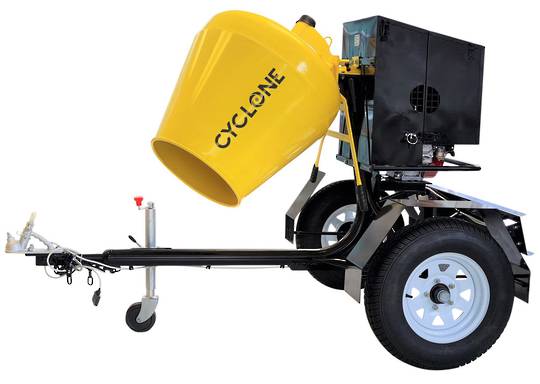Key Features to Look for When Buying a Plate Compactor
If you're in the market for a plate compactor, whether it's for professional construction projects or DIY landscaping, choosing the right one can make a significant difference in efficiency and results.
Plate compactors are essential tools for compacting soil, gravel, asphalt, and other materials, making them crucial for achieving a solid, level surface. To ensure you select the best plate compactor for your needs, consider these key features during your search.
- Engine Type and Power
The engine is the heart of a plate compactor, so understanding the engine type and power is crucial. Plate compactors typically come with gas-powered or electric engines.
Gas-powered engines offer mobility and high power, making them suitable for outdoor use where electricity may not be readily available. Electric plate compactors, on the other hand, are quieter, emit fewer fumes, and are ideal for indoor projects or areas with strict noise regulations.
Consider the horsepower (HP) or kilowatts (kW) of the engine to ensure it matches the workload and materials you'll be compacting. Higher horsepower engines are better suited for compacting tougher materials and larger areas.
- Plate Size and Compaction Force
The size of the plate directly influences the compactor's coverage area and compaction force. Larger plates cover more ground with each pass, which can speed up your work. However, larger plates may also be heavier and more challenging to maneuver, especially in tight spaces.
The compaction force, measured in pounds or kilograms, determines how effectively the compactor can compress the material. Look for a balance between plate size and compaction force that suits your specific project requirements.
- Vibration Frequency and Amplitude
The effectiveness of a plate compactor depends on its ability to generate sufficient vibrations to compact the material thoroughly. Vibration frequency (measured in vibrations per minute, or VPM) and amplitude (the distance the plate moves up and down) are key factors influencing this capability.
Higher vibration frequencies and amplitudes generally result in better compaction. Look for a compactor with adjustable vibration settings to suit different materials and conditions.
- Mobility and Maneuverability
Consider the portability and maneuverability of the plate compactor, especially if you anticipate working in tight or hard-to-reach areas. Some compactors come with features like folding handles or wheels for easier transportation and storage.
Additionally, check the weight of the compactor. While heavier machines often provide better compaction, they can be more challenging to transport and operate, particularly for extended periods.

- Durability and Build Quality
Investing in a durable plate compactor is essential for longevity and performance. Look for models constructed from high-quality materials, such as heavy-duty steel for the base plate and frame. Welded seams and reinforced components can enhance durability, ensuring the compactor withstands the rigours of regular use.
- Ergonomics and Operator Comfort
Operating a plate compactor can be physically demanding, especially during extended periods. Choose a model with ergonomic features such as vibration-dampening handles and comfortable grips to reduce operator fatigue and improve control.
- Maintenance Requirements
Consider the maintenance needs of the plate compactor before making a purchase. Opt for models with accessible maintenance points, such as easy-to-reach oil and air filters. Clear maintenance instructions and availability of spare parts are also essential for ensuring longevity and optimal performance.
- Additional Features
Lastly, consider any additional features that could enhance productivity or safety. Features like a water tank for asphalt compaction, a wheel kit for easy transportation, or a lifting hook for crane use can add versatility and convenience to your plate compactor.
Conclusion
Selecting the rightplate compactorsinvolves evaluating several key features that directly impact performance, durability, and usability.
By understanding your project requirements and considering factors such as engine type, plate size, compaction force, and ergonomics, you can confidently choose a plate compactor that meets your needs and delivers excellent results. Remember to prioritise quality and functionality to ensure years of reliable service from your new plate compactor.

Comments
Post a Comment